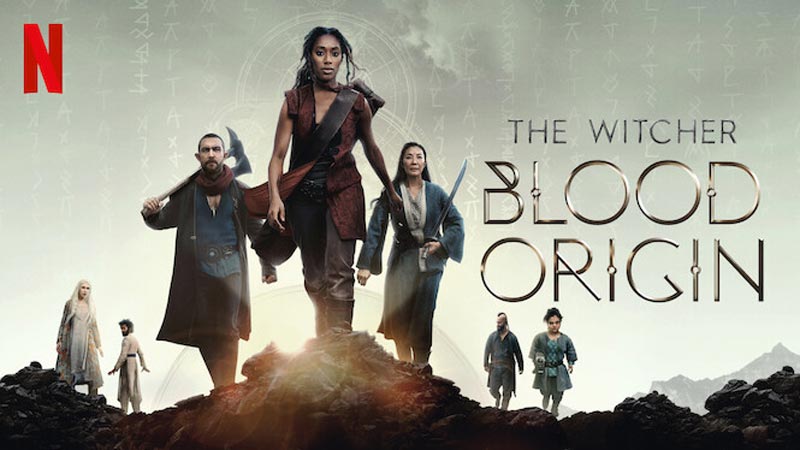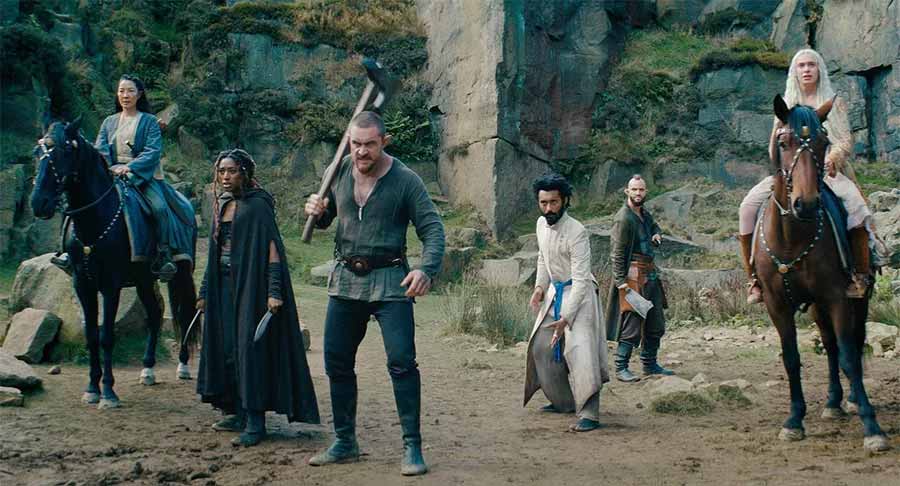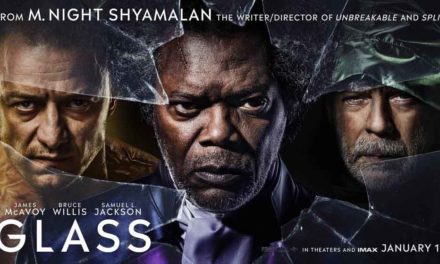THE WITCHER: BLOOD ORIGINS on Netflix is the origin story of the Witcher prototype. Well, of the entire world we know from The Witcher really. This prequel story is told over just 4 episodes. Read our full The Witcher: Blood Origins series review here!
THE WITCHER: BLOOD ORIGINS is a new Netflix limited series in The Witcher universe. In fact, this is the origin story of the very first Witcher prototype. Actually, it also tells us a lot more about how the entire world of elves, dwarfs, humans, and monsters come to share one world.
YOU MIGHT LIKE
This prequel story is told as a limited series and has just four 45-minute episodes. In other words, it’s the perfect afternoon or evening binge-watch during the Holidays. And yes, we’ve watched all four episodes for this review. Also, no, we won’t be giving away any spoilers for Blood Origin.
Continue reading our The Witcher: Blood Origins series review below. All four episodes are on Netflix from December 25, 2022.
The full origin of The Witcher
While The Witcher: Blood Origins is very much about how the very first prototype of Witcher comes to be, it’s so much more. It’s really about the entire creation of the world we see in The Witcher series on every level.
Every part of that story has a beginning, and in this limited spin-off series (or simply prequel, if you prefer), we get a lot of beginnings. This is the previously untold history of the Continent. It’s set in an elven world 1200 years before the events of The Witcher on Netflix.
DO CHECK OUT
In this prequel series, the story includes the creation of the first prototype Witcher and the events that lead to the all-important “Conjunction of the Spheres”. After all, this was the moment when the worlds of monsters, men, and elves merged. Since this is the world we see in The Witcher, it’s also the ending of The Witcher: Blood Origins, which makes it a very complete spin-off.
It could have been a bit longer
Despite this The Witcher prequel being a very complete and finished story, it could have benefited from being a bit longer. Well, either that or have cut a few stories. Maybe just wrapped them up during some of the narrator’s moments that set the stage.
We’re introduced to quite a few characters – not unlike Lord of the Rings: The Fellowship of the Ring. However, instead of them all meeting up from the beginning, we see them on different paths. This results in their time as an actual fellowship being quite limited.
This, in terms, makes some of their strong bonds feel quite forced. Suddenly, people have to meet and be ready to die for one another in a very short time span. This includes both friendships and romantic relationships.
The huge and wonderful cast of Blood Origins
For me, the relationship between Fjall (Laurence O’Fuarain) and Éile / The Lark (Sophia Brown from Marcella season 2) didn’t work very well, which is a real shame. I enjoyed both characters and liked the actors, but not so much their scenes together. Éile and Scian (Michelle Yeoh) were much stronger.
In general, I did really enjoy all the actors in Blood Origins. Lenny Henry is awesome as Balor, and Francesca Mills (Harlots) is perhaps my favorite character as Meldof. If you’re also a fan of The Walking Dead, she’s like a smaller – but feistier – version of Negan. Instead of a “Lucy”, Meldof has her Gwen. I adored her!
In a far too small role, we also see Nathaniel Curtis. Actually, most actors have too little screen time, because I also wanted more of Zach Wyatt, Kim Adis, Huw Novelli, and Mirren Mack. The latter had quite a lot of screentime as Merwyn, but was very intriguing.
Also, in a very small (but pivotal) role, we see Minnie Driver and I am always happy to see her.
Watch The Witcher: Blood Origins on Netflix!
Lauren Schmidt Hissrich is still the creator of this limited series, just as she was the creator of The Witcher series on Netflix. This time she is also joined by Declan De Barra. It’s based on the book by Andrzej Sapkowski. The prequel writers are Tania Lotia, Alex Meenehan, Aaron Stewart-Ahn, Kiersten Van Horne, and Lauren Schmidt Hissrich.
There are two directors who work both together or solo on these episodes. The directors are Vicky Jewson (Close) and Sarah O’Gorman (The Witcher, Cursed). The style of it is very much true to the precedence set with the Netflix series adaption of The Witcher.
If you enjoy that, you should expect more of the same – or at least something recognizable – from this prequel. Obviously, this also means that you can’t expect to love this origin story if you don’t like the actual series.
As already mentioned, this is a very complete spin-off/prequel. When episode 3 ended, I was thinking there was no way they could wrap this up properly with just one final episode. However, they absolutely did. Again, I feel some relationships came across as forced, but otherwise, the storytelling did work for me.
The four episodes of The Witcher: Blood Origins are on Netflix globally from December 25, 2022.
Details
Creators: Lauren Schmidt Hissrich & Declan De Barra
Directors: Sarah O’Gorman, Vicky Jewson
Screenwriters: Declan De Barra, Lauren Schmidt, Tania Lotia, Alex Meenehan, Aaron Stewart-Ahn, Kiersten Van Horne
Novels: Andrzej Sapkowski
Cast: Michelle Yeoh, Sophia Brown, Laurence O’Fuarain, Mirren Mack, Lenny Henry, Jacob Collins-Levy, Lizzie Annis, Huw Novelli, Francesca Mills, Amy Murray, Nathaniel Curtis, Zach Wyatt, Dylan Moran, Aidan O’Callaghan, Jon Prophet
Plot
Set in an elven world 1200 years before the world of The Witcher, Blood Origin will tell a story lost to time – the creation of the first prototype Witcher, and the events that lead to the pivotal conjunction of the spheres, when the planets of monsters, men, and elves merged to become one.
- Murder Mindfully – Review | Netflix - October 30, 2024
- Time Cut – Review | Netflix (3/5) - October 30, 2024
- Cellar Door – Movie Review (3/5) - October 29, 2024








